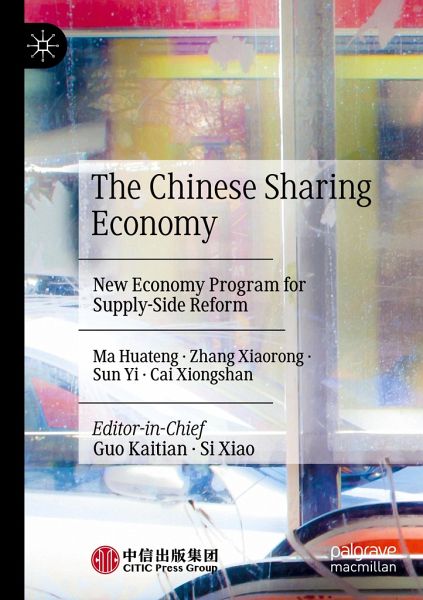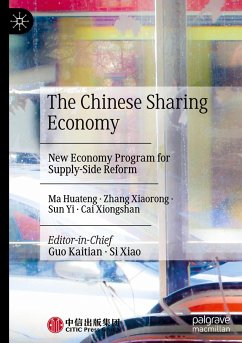
The Chinese Sharing Economy
New Economy Program for Supply-Side Reform
Herausgegeben: Kaitian, Guo; Xiao, Si
Versandkostenfrei!
Versandfertig in 6-10 Tagen
83,99 €
inkl. MwSt.
Weitere Ausgaben:

PAYBACK Punkte
42 °P sammeln!
This book explores the social and economic impact of the sharing economy- of taxis, apartments, and other goods and services- in China, and how the sharing economy can allow for supply-side economic reform. The sharing economy is in the ascendant in China, and significant achievements have been made in innovation in leasing, travel and other fields. This book predicts that this economic tide, which has affected hundreds of millions of people, will inject a powerful new momentum into China's economic growth, help China's economy achieve "power conversion" and turn the service industry into the ...
This book explores the social and economic impact of the sharing economy- of taxis, apartments, and other goods and services- in China, and how the sharing economy can allow for supply-side economic reform. The sharing economy is in the ascendant in China, and significant achievements have been made in innovation in leasing, travel and other fields. This book predicts that this economic tide, which has affected hundreds of millions of people, will inject a powerful new momentum into China's economic growth, help China's economy achieve "power conversion" and turn the service industry into the "main engine" of economic growth. This book will interest China watchers, economists, and scholars of the technology sector.














